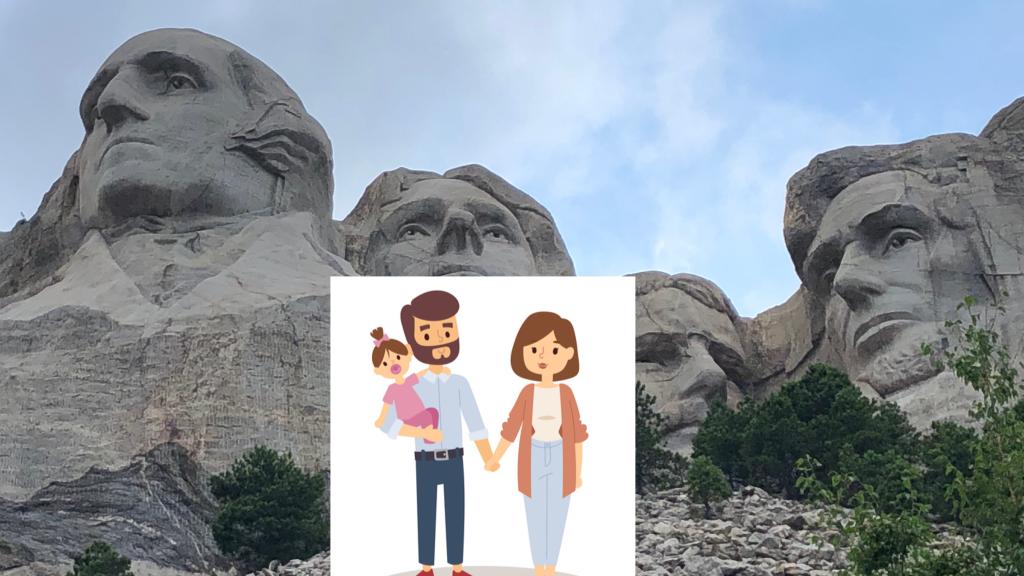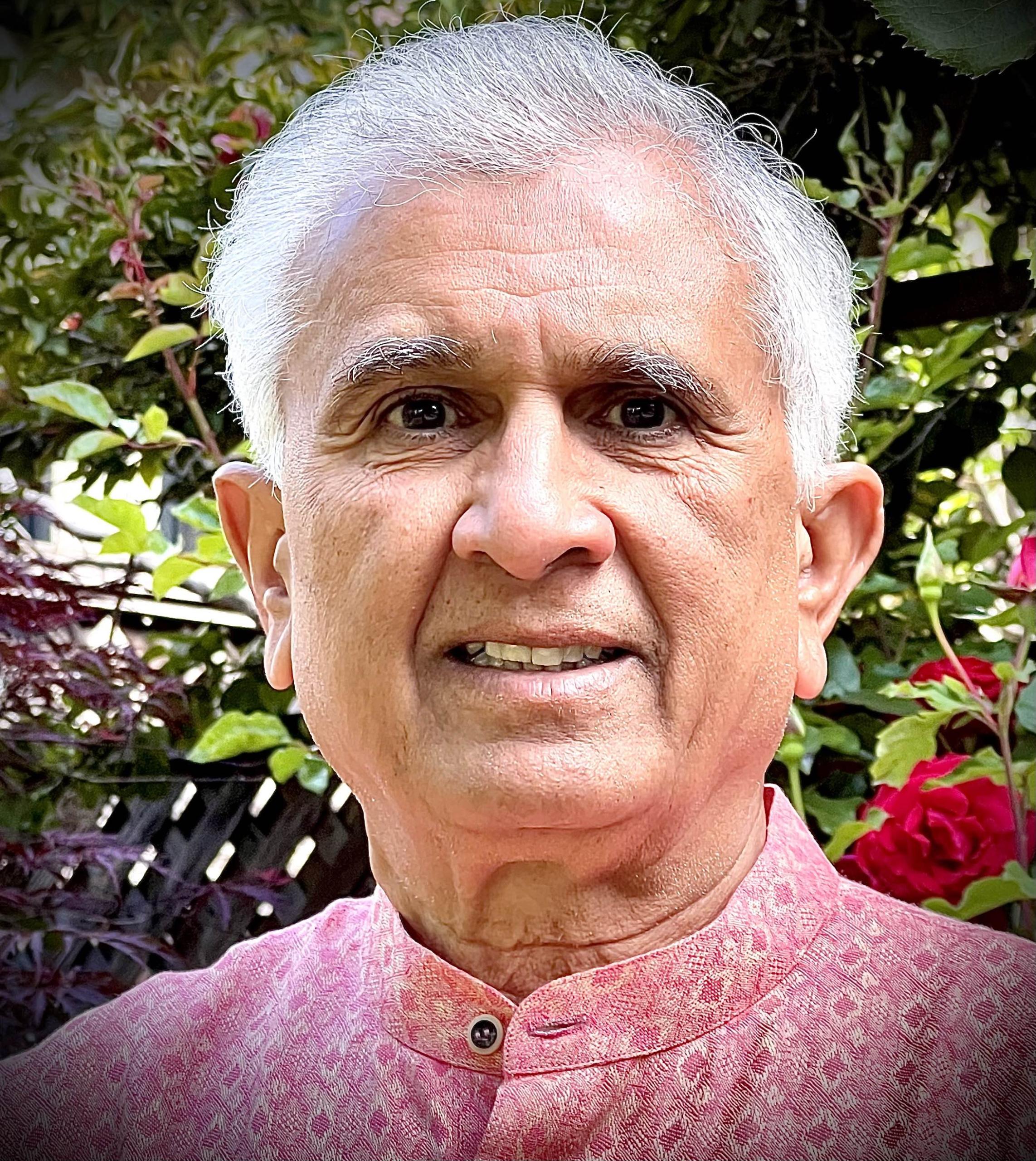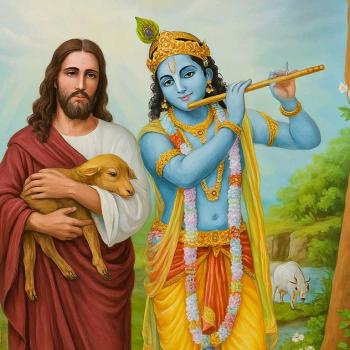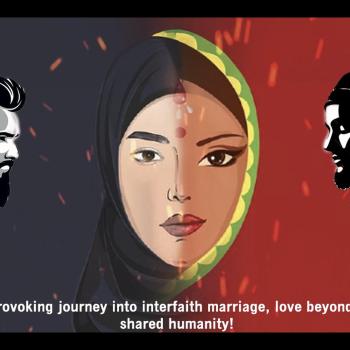Religious conversion for interfaith marriage remains a common practice in Abrahamic traditions. Often, the individual converting is led to believe—or made to declare—that the decision was entirely by personal choice, without coercion. But is that truly the case?

Conversion by Coercion, not Choice
The author presents three real-life case studies to illustrate how religious conversions—though often presented as voluntary—may involve subtle or unrecognized coercion. He has also guided some 1300 youths in interfaith relationships and this is his general observation over the past 19 years.
Case 1: The Jewish-Hindu Marriage
While hiking in Mt. Rushmore, the author met a white Jewish man carrying an Indian-looking daughter. As they conversed, his Indian wife joined. Unprompted, the Jewish man clarified that theirs was not an interfaith marriage because she had converted to Judaism “by her own choice” before their Jewish wedding. The woman, however, appeared uncomfortable and avoided eye contact. The author sensed she did not seem as proud of her life decision as her husband portrayed. While the author could be wrong, her demeanor raised doubts about how freely that decision for conversion was made.
Case 2: Geeta’s Forced Conversion During Pregnancy
Geeta, a Hindu woman, was eight months pregnant when her Muslim husband, under pressure from his parents, insisted she convert to Islam so their child would be considered legitimate in the eyes of Allah. Geeta was misled into visiting a mosque, where an imam recited verses in Arabic. Soon after, people congratulated her—she had unknowingly converted, apparently “by choice.” Following a divorce, Geeta formally reverted to Hinduism.
Case 3: Rinku and the Gym Trainer
Rinku was struggling in her Hindu marriage when she fell in love with a Muslim gym trainer, who was already married. He agreed to marry her—but only if she first converted to Islam. She studied the Quran, converted by her own choice, and began praying five times a day. Eventually, the trainer backed out of the marriage. Disillusioned, Rinku ended both the relationship and her brief journey with Islam, returning to her Hindu roots. In her own words, “Islam is an extremely powerful brainwashing mechanism.”
In all these cases (and many others), the conversions may appear to be by “choice” on the surface—but were driven by emotional pressure, social obligation, misinformation, and or manipulation.
Conversion: A Salvage Tool for Love?
It is difficult to definitively say whether most interfaith-related conversions before marriage are truly voluntary or simply desperate attempts to preserve a long-term romantic relationship. The lines between free will and emotional coercion are often blurred.
Religious Institutions and Compulsions due to National Laws
Even when religious texts promote freedom (e.g., “There is no compulsion in religion” – Quran 2:256), real-world practices often contradict them.
•In Catholicism, a non-Catholic must agree—legally and in writing—that children will be raised solely in the Catholic faith to have a church wedding. This is a non-negotiable condition worldwide.
•In Islam, many Muslim-majority countries prohibit registration of interfaith marriages unless the non-Muslim partner converts. The “choice” is either to convert or to end the relationship. A third option—leaving the country permanently and get married abroad—is rarely viable.
Questions to Identify True Intent
The author respects the right to change faiths, but he encourages critical self-reflection before a conversion tied to marriage takes place. When someone claims they’re converting “by choice,” the author poses the following questions:
1. Would you have converted if you never met your partner?
2. Have you explored other religions before concluding your partner’s faith is best?
3. If your partner or their family never suggested conversion, would you still pursue it before marriage?
4. Why convert before marriage, instead of after experiencing interfaith life?
5. If your partner ends the relationship today, would you still convert?
6. If you divorce in the future, will you continue practicing your new faith sincerely?
7. If you died soon after conversion, would you be at peace with burial/cremation rites in the new faith?
8. Do you realize that conversion might obligate you legally to raise children solely in the new faith?
9. Will you ask your parents to avoid exposing grandchildren to your birth faith?
10. Do you understand that accepting Jesus or Muhammad/Allah isn’t about adding one God, but renouncing all previous beliefs?
11. Do you now view your original faith as inferior?
12. If you were atheist, are you now truly convinced of divine salvation through this new religion?
13. Is your conversion a genuine transformation or a convenient compromise?
14. Are you building your marriage on lies and deception by faking belief?
15. Shouldn’t your partner love you as you are, rather than wanting to change your core identity?
16. LIKE or LOVE? Lord Buddha said, “When you like a flower, you just pluck it. But when you love a flower, you water it daily.” Why is your partner asking you to convert to whom you are not? Why not he/she nurturing you for who you are today?
17. Are you prepared for more submission considering this is just the first of many religious demands up coming?
18. Was love with you by your partner’s genuine intent, or was it missionary zeal disguised as romance?
19. By converting, are you promoting love-proselytism that targets others like you in the future?
20. Instead of you converting, why not ask your partner to consider accepting your faith?
What If You Are Already Converted?
If you’ve already converted for or after an interfaith marriage, revisit the questions above. Ask yourself:
•Do you feel at peace with your new religious identity?
•Did you change your name? Do you feel guilt about hurting your parents or leaving your culture?
•Were you slowly pressured with positive reinforcements for conforming and negative ones when you resisted?
•Does your new faith feel spiritually enriching—or merely a formality?
The author invites those who have experienced conversion for marriage to reflect and share: Was it truly your free choice—or was there underlying coercion you didn’t recognize at the time?
Victims of Conversion-for-Marriage
Over 19 years of research and experience, the author has seen many individuals suffer emotionally, spiritually, and legally after converting for marriage or got rejected when declined to convert for marriage. Often, dominant faith communities take pride in such conversions and insist they were voluntary—even when the truth suggests otherwise.
We must learn to respect people for who they are, rather than imposing beliefs. It’s time to end the practice of religious conversion for marriage.
Summary
Based on nearly two decades of experience, the author concludes:
It is a myth that most conversions for interfaith marriage are by true personal choice. Subtle coercion, emotional manipulation, or religious pressure is almost always involved. It is time to recognize this truth and end the practice of religious conversion as a condition for marriage.
More Reading:
Legal implications in Interfaith Marriages (Hindu-Jewish Marriage)














